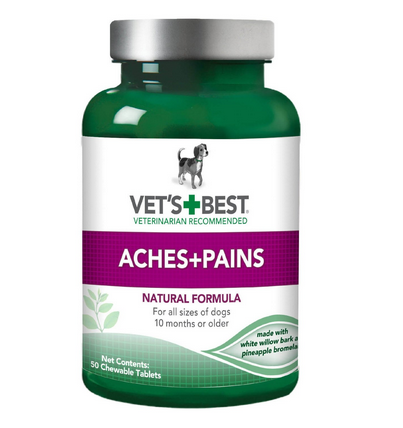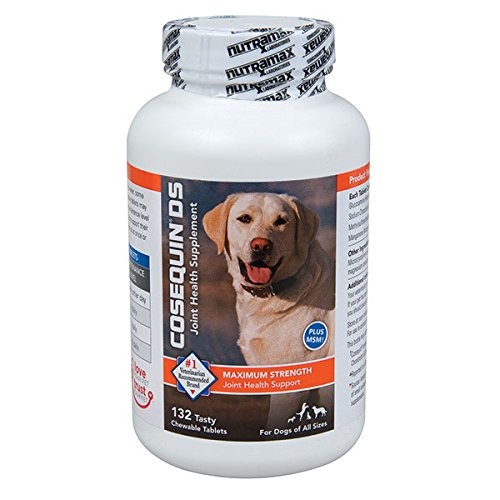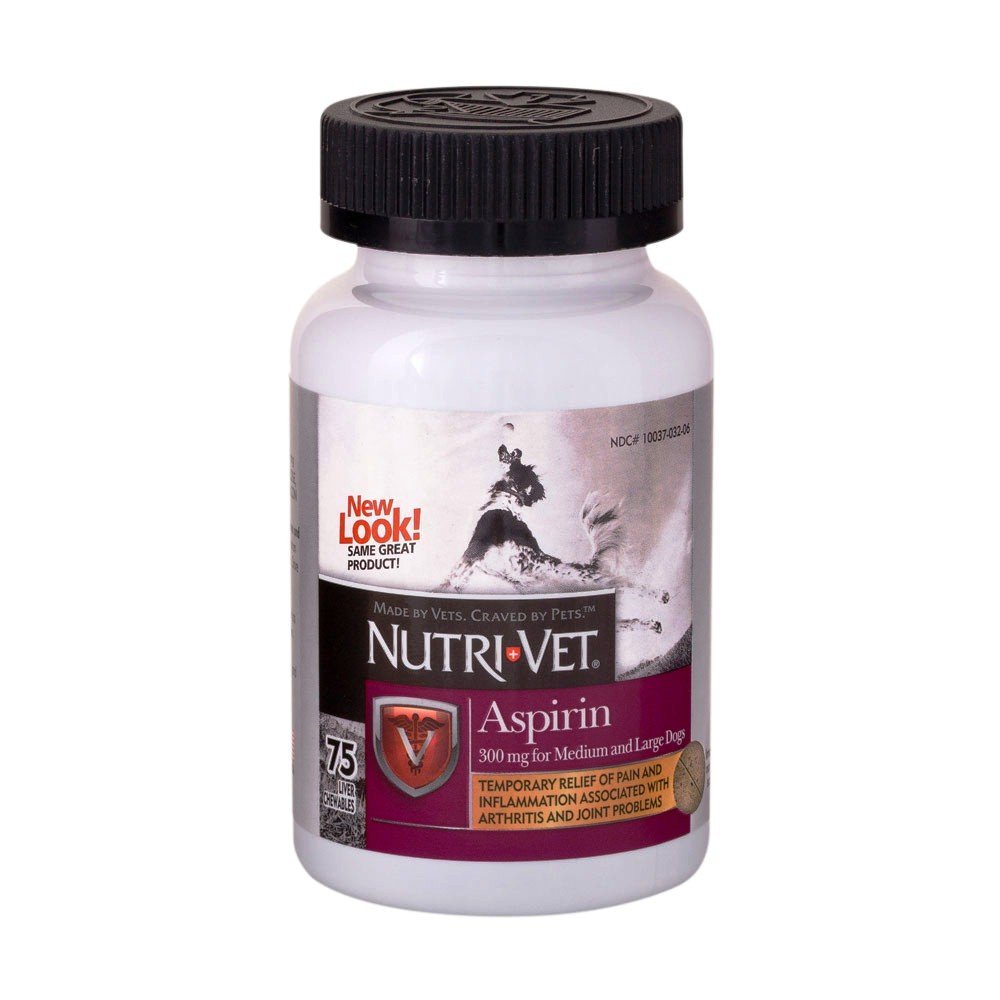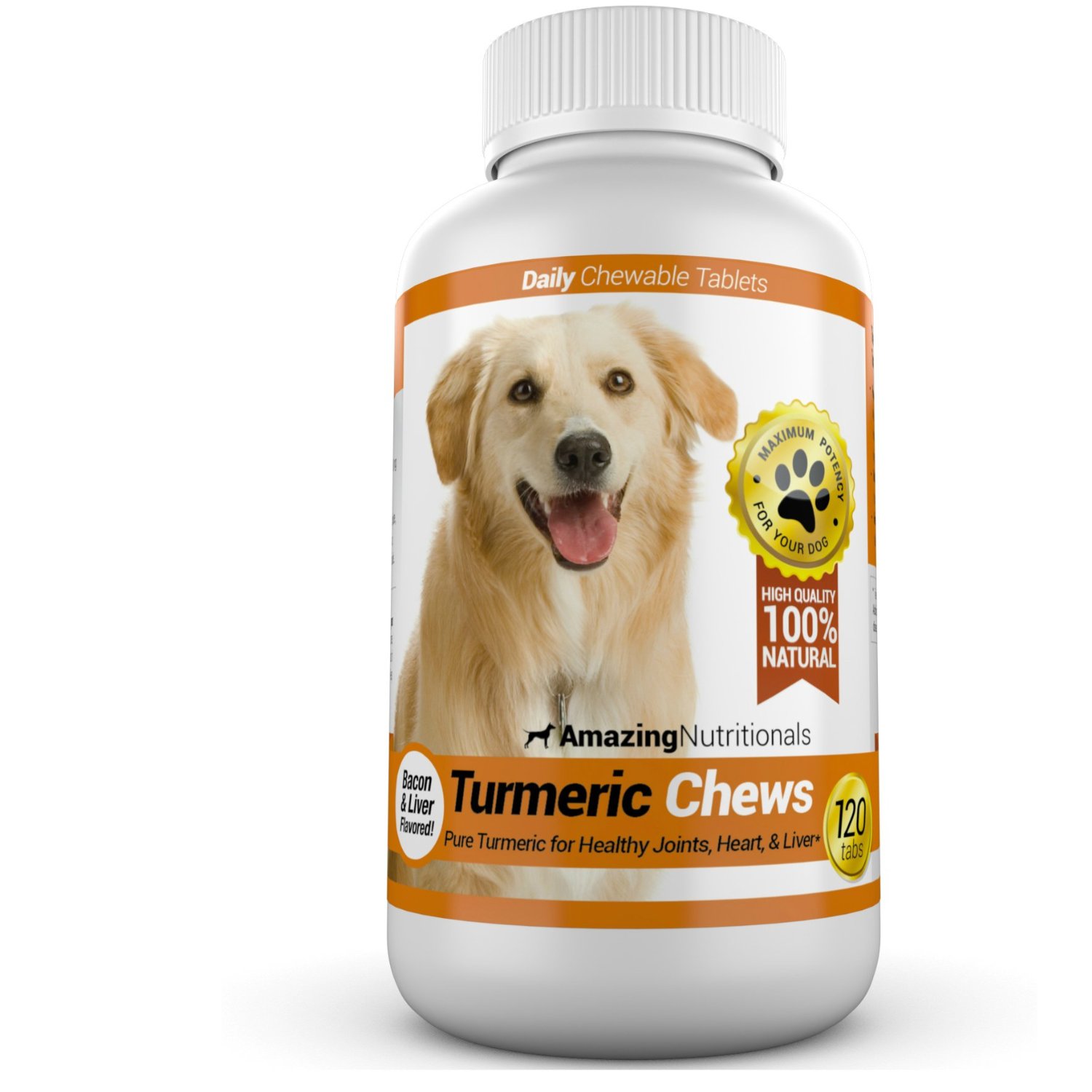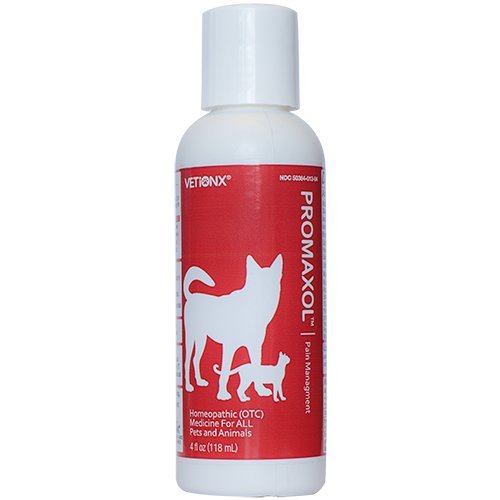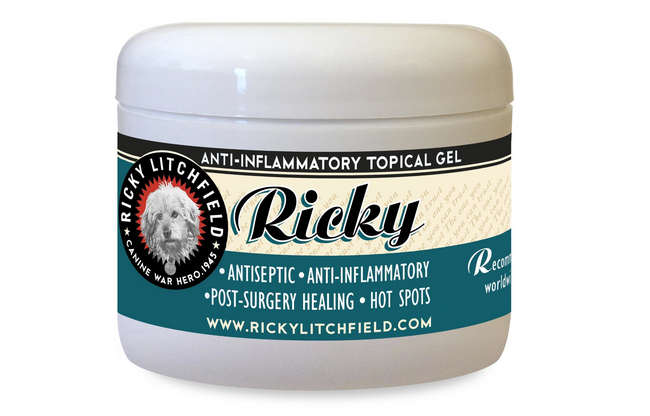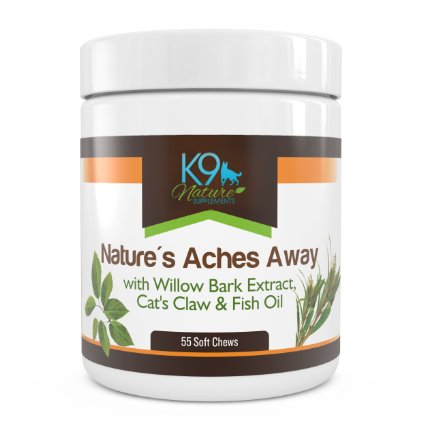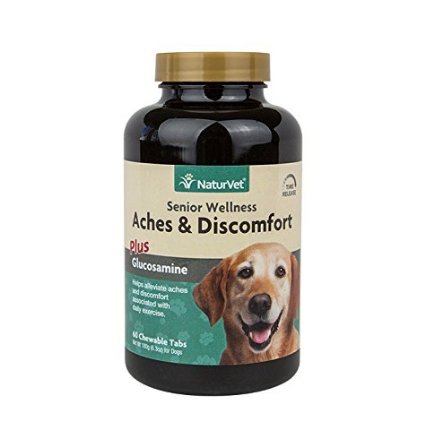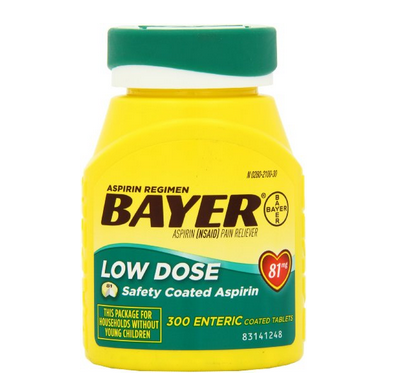Have you been looking for the answer to: “Can I give my dog pain medicine?” or “What kind of pain medicine can I give my dog?” Well, look no further. We’ve spent countless hours researching the top 10 pain medications for dogs in order to help dog owners everywhere. Nothing breaks a pet parent’s heart more than seeing their fur baby in pain. Pain can stop your dog in its tracks, keeping them from enjoying the activities they love the most. Help your dog feel better faster with these pain medicines.
Note: The advice in this blog should not be substituted for the sound medical advice of a veterinarian. If you notice that your dog is in pain and you’re unsure of the cause, call your vet as soon as possible so that they can determine the seriousness of the ailment. Avoid long term use of pain medication unless otherwise instructed to do so by your veterinarian. While medicating your dog, closely monitor their behavior and health and call your vet if your dog isn’t improving.
Top 10 Pain Medications for Dogs
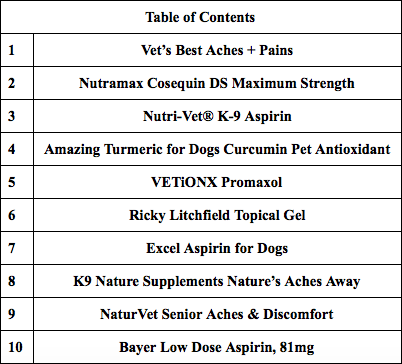
1. Vet’s Best Aches + Pains
According to the label, this medication is formulated to relieve “discomfort associated with regular exercise and normal activity.” The active ingredients include glucosamine, bromelain, methylsulfonylmethane (MSM), white willow bark extract, and yucca root, which are great anti-inflammatories that promote joint health. A 50-count bottle is available for $6.79 on Amazon.
2. Nutramax Cosequin DS Maximum Strength
Cosequin DS is one of the highest rated and reviewed joint health medications on the market. In fact, it’s the #1 veterinarian recommended retail joint health supplement brand. It helps with dogs who suffer from arthritis or joint pain due to age or weight. If your dog doesn’t like taking pills, then you’re in luck because it’s also available in a soft chew. A 132-count bottle is available for $34.95 on Amazon.
3. Nutri-Vet® K-9 Aspirin
According to its label, Nutri-Vet K-9 aspirin is for the “temporary relief of pain and inflammation associated with arthritis and joint problems.” The aspirin is available in 300 mg tablets for medium and large dogs and 120 mg tablets for small dogs. The active ingredient is aspirin. A 75-count, 300 mg bottle retails for $11.49 on Amazon.
4. Amazing Turmeric for Dogs Curcumin Pet Antioxidant
In case it wasn’t obvious by the title, the active ingredient in this medication is turmeric. Curcumin, which is the primary compound in turmeric, is known for being a potent anti-inflammatory. Its low risk for side effects and hypoallergenic composition make it a great option for dogs prone to allergies. Turmeric Chews is available on Amazon for $21.97.
5. VETiONX Promaxol
According to VetiONX, this “fuss-free liquid formula can be added undetected to your pet’s water.” This is a plus if your dog is a picky eater or trickster when it comes to taking medications. A bottle of Promaxol retails for $39.00 on Amazon.
6. Ricky Litchfield Topical Gel
Named after the World War II canine war hero, this gel works to relieve hotspot, arthritis, and muscle pain through its use of buchu oil. Buchu oil is known for its anti-inflammatory and antiseptic properties, making it an ideal ingredient for pain relief. Ricky Litchfield Topical Gel is available for $19.95.
7. Excel Aspirin for Dogs
According to the label, Excel Aspirin for Dogs “relieves minor aches and pains and inflammation associated with arthritis and joint problems.” The enteric coated pills make it easy on your dog’s digestive system, helping to prevent ulcers. Excel aspirin is available for $5.68 on Amazon.
8. K9 Nature Supplements Nature’s Aches Away
These soft chews are formulated with fish oil, cat’s claw root extract, willow bark extract, and other natural ingredients. The three active ingredients are known to relieve joint pain and arthritis. These chews are an excellent choice if you want to give your dog all natural medicine. You can purchase Nature’s Aches Away for $29.77 on Amazon.
9. NaturVet Senior Aches & Discomfort
This particular medication is engineered specifically for senior dogs. The glucosamine in the tablets works to naturally restore joint health by improving joint lubrication and anti-inflammation. Because it has rare side effects, glucosamine is a safer option for sick or sensitive pets. NaturVet Senior Aches and Discomfort is available for $10.75 on Amazon.
10. Bayer Low Dose Aspirin, 81mg
Last, but not least, is plain old aspirin. As we’ve mentioned in previous blog posts, the only human pain medicine that is safe to administer to your dog is baby aspirin, also known as a low dose aspirin. Even though low dose aspirin is safe for dogs, you should follow these guidelines to avoid over-medicating your pet. Bayer, the #1 bestseller in aspirin, is available for $10.87 on Amazon.
Further Information
Knowing the cause of your dog’s pain can help when buying pain medication. The active ingredients in the medication are what’s most important and helpful in relieving discomfort. The most common active ingredients in dog pain medication are glucosamine, chondroitin, methylsulfonylmethane (MSM), turmeric, bromelain, and aspirin.
Glucosamine is naturally found in the body and when taken as a supplement appears as either a hydrochloride or sulfate. Glucosamine helps alleviate pain by improving the health of the cartilage found in your dog’s joints. Chondroitin is also found in the body naturally and is frequently paired with glucosamine in order to improve joint health and mobility. MSM is an anti-inflammatory used to treat arthritis and other joint inflammation. The sulfur found in MSM is a key component in the composition of joints, cartilage, and skin. Turmeric has anti-inflammatory properties, which makes it ideal for dogs suffering from swelling and stiffness. Similarly, bromelain is an enzyme found in pineapples that works against inflammation, especially in the sinus area, which makes it a good choice for dogs with seasonal allergies.
If you’re looking for something to treat a more generalized medication, you may want to consider aspirin but be extremely cautious when using low dose aspirin. Aspirin is a nonsteroidal anti-inflammatory drug (NSAID) used to treat general pain caused by over exercise. The FDA has approved the following NSAIDs for use in treating dog pain: carprofen, deracoxib, firocoxib, and meloxicam. If you do choose to give your dog medication, we have some tips on how to give your dog medication.
Additional Help
Dealing with a sick pet is no fun, but you don’t have to standby and feel helpless while your dog languishes away in a corner. When used appropriately, pain medication can help your pup feel better faster. That way your little furballs can get back to chasing squirrels, jumping on the couch, doing other things they love. If you’re still not sure which pain medication is right for your dog, call TalkLocal and we’ll connect you with a veterinarian who can help.
–
The owner of this website is a participant in the Amazon Services LLC Associates Program, an affiliate advertising program designed to provide a means for sites to earn advertising fees by advertising and linking to Amazon properties including, but not limited to, amazon.com, endless.com, myhabit.com, smallparts.com, or amazonwireless.com.

